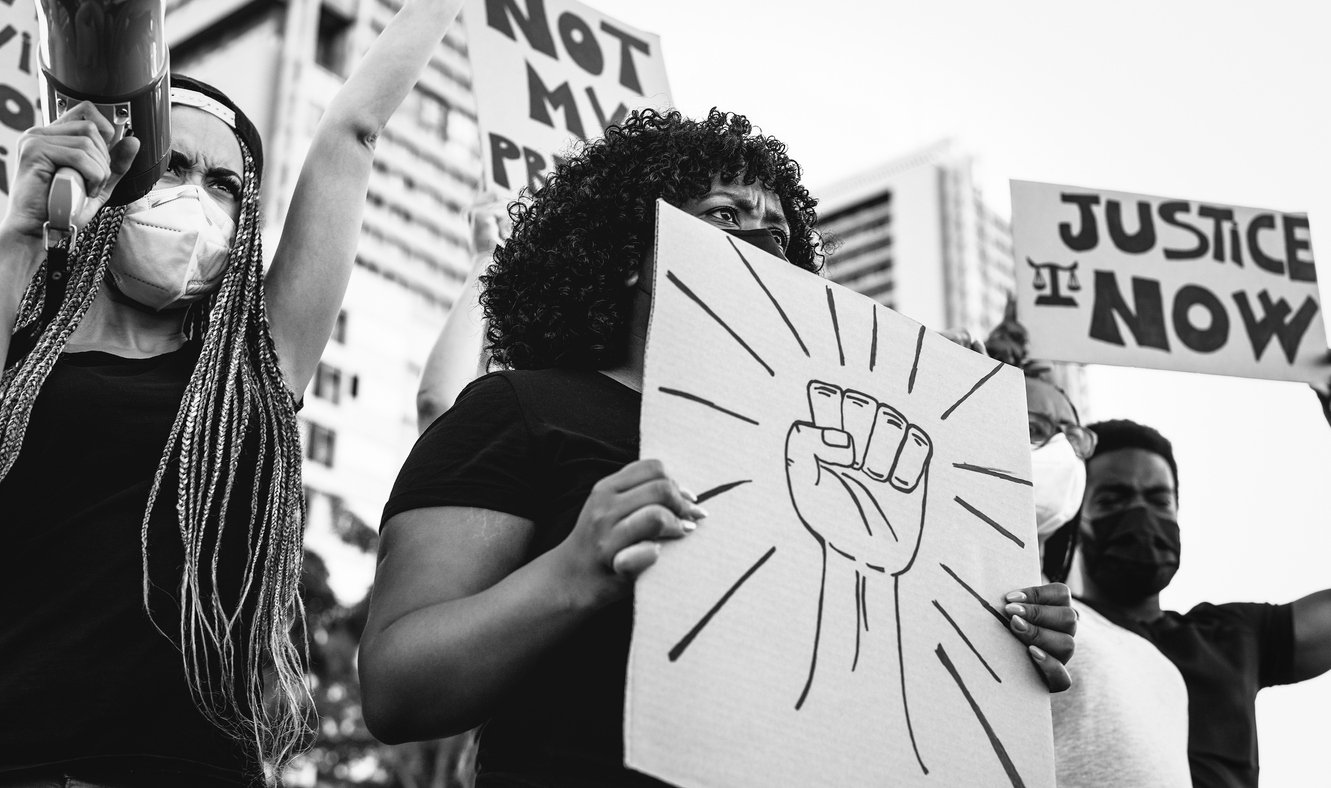
The history of America was built by many cultures and ethnic groups. American history encompasses a myriad of cultures, and during the month of February we get the opportunity to celebrate and put a spotlight on Black history and how a race of marginalized people continue to strive against the odds and work toward equality.
In the United States, Black history has evolved into the fiber that keeps America fueled with a creative spirit. From the literature of the Harlem Renaissance and Civil Rights Movement to jazz music and cultural cinematic feats, Black history encompasses a culture, a rhythm, and literary periods that aim to highlight the atrocities many people within the race suffered.
Encourage your students to research the history that we commemorate and celebrate during the month of February, so they can become knowledgeable about the unique contributions this race of people has made throughout American History. Let’s explore some historical facts and highlights from Black history that you can share with your students.

Photo: iStock by Getty Images
Black History in American Culture
The culture of Black Americans runs deep in this country. The contributions range from culinary arts through dishes labeled soul food to cultural artistry through painters, authors, and poets such as Maya Angelou and Gwendolyn Brooks. Throughout the history of the United States, Black Americans have been integral forces behind several genres of music, including the blues, jazz, hip-hop, and rap.
When Black Americans were lynched, songs like “Strange Fruit,” by Billie Holiday, and “A Change is Gonna Come,” by Sam Cooke, were performed and widely circulated in popular culture. Although these songs could have destroyed the prestigious careers of these artists, the stakes of the times were too important, and now these songs are long-lasting expressions of the era. Books were authored by great Black Americans who experienced the racism that prevailed throughout their lives. The Invisible Man, by Ralph Ellison, The Miseducation of the Negro, by Carter G. Woodson, and Notes of a Native Son, by James Baldwin, chronicled feelings of marginalization and gave these individuals a voice through literary channels.

Photo: iStock by Getty Images
A History of Promoting Change
When the civil rights of Black Americans were threatened, protesting was the only option. Groups like the Congress of Racial Equality (CORE), Southern Christian Leadership Conference (SCLC), and The National Association for the Advancement of Colored People (NAACP) were formed to give Black Americans a voice and opportunity to fight for equality. The institution of the Civil Rights Act through the Civil Rights Movement moved forward a monument of people who changed the look of this country through their acts of courage and bravery. The importance of this act focuses on the premise that all people can be fairly treated in a country that exists based on its miscellany of cultural and ethnic contributors.
When Black Americans were shot down in the street, they marched and created movements such as The Black Panther Party, Student Non-Violent Coordinating Committee (SNCC), and Black Lives Matter. When racial inequality prevailed in America’s education system, organizations like SNCC staged sit-ins, while court cases like Brown vs. Board of Education, argued by Supreme Court Justice Thurgood Marshall in his days as a civil rights lawyer; brought to the forefront a system of inequity that promoted “separate but equal” in our nation’s classrooms. These parties and initiatives changed the American landscape for the better and are just a few of the monumental occasions we celebrate this month.
One of the greatest creations of Black Americans has been developing and building the moral fiber of this country through tenacity and the consistent undertone of standing on the right side of history and believing that the laws will prevail to support us. As a race of people, historically, Black Americans have been subjected to some of the worst treatment humans could ever fathom, but the development of resistance and a core of strength have brought resilience. The history of Black Americans is not predicated on their derogatory treatment. No, it has been created and sustained through reinvention, and the belief and stronghold that they will not be forgotten. Black Americans are part of the past, present, and future of the United States. We will stand strong and we will have a voice that resoundingly states, “We are Black history 365, 24-7.”
Want Black History Month resources to teach all year round?
Sign up for a free trial of Active Classroom
Sheree Turner, Ph.D. is a Master Teacher Leader in an urban school district in Atlanta and a 27-year veteran educator specializing in English Language Arts (ELA) and Social Studies. Dr. Turner is also an adjunct professor with University of Phoenix in the School of Education graduate studies. She is certified in middle grades social studies, gifted-learner endorsed, and reading endorsed. Her area of interest is ensuring social studies does not become extinct in the 21st century classroom.